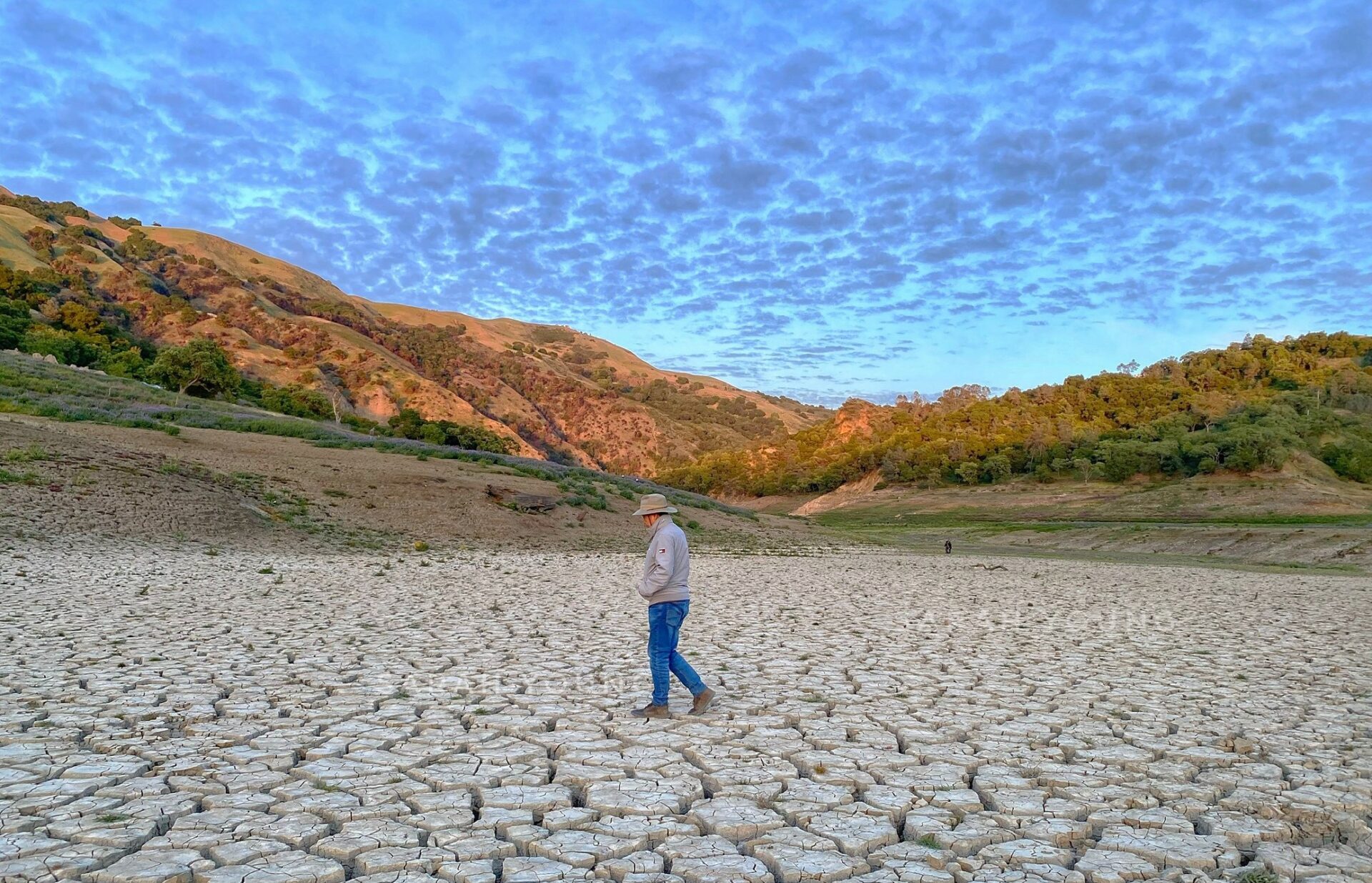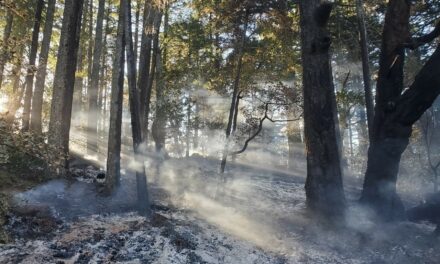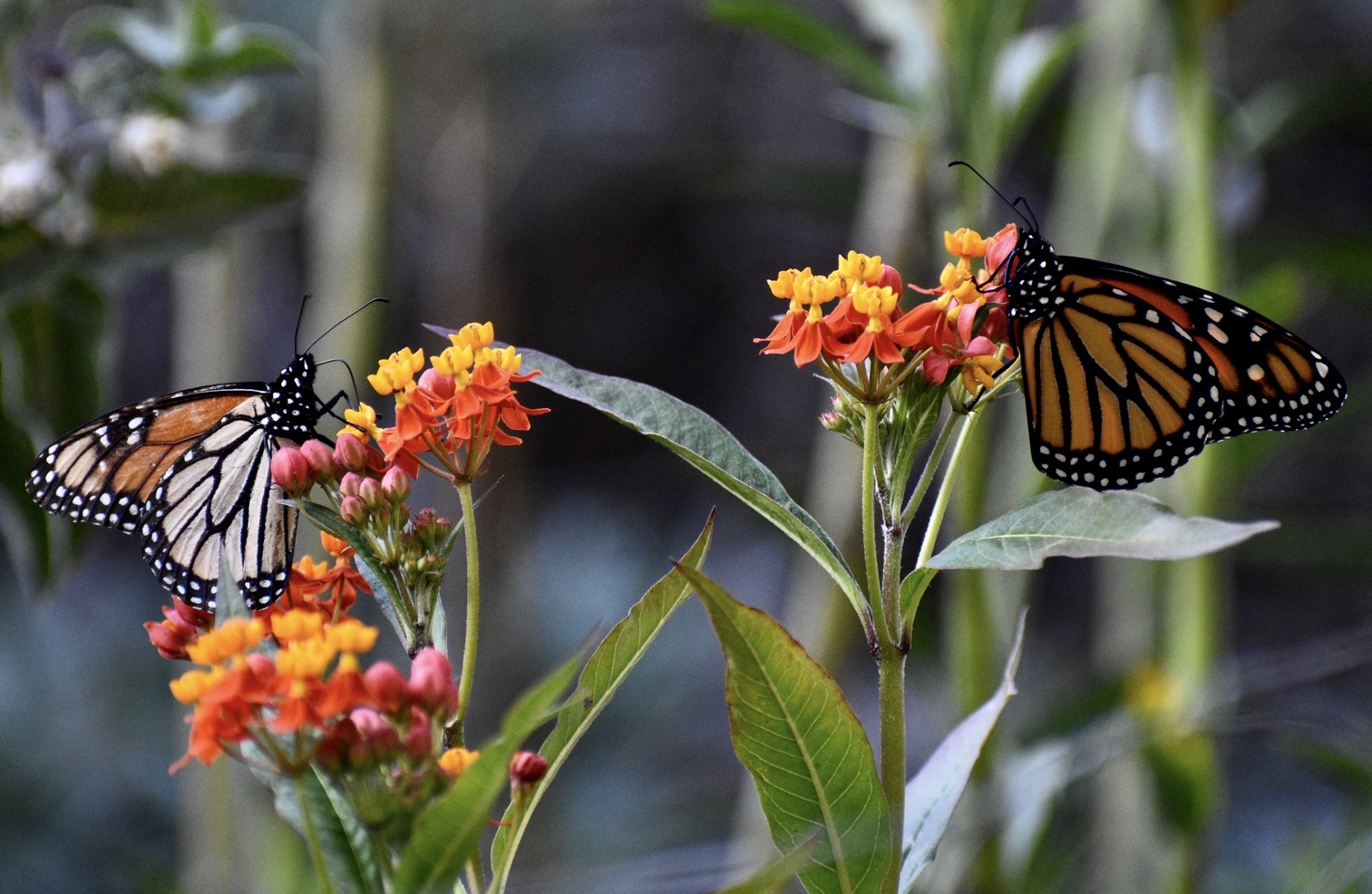Slaying Beasts at Valley Water
When Gary Kremen delivered his State of Valley Water Address on February 8th, he had Herculean beasts and ecological balance sheets on his mind. Kremen, chairman of the board of directors of Valley Water, described the “triple-headed hydra” threatening the district as the combination of a worsening drought, an evolving COVID-19 pandemic, and an increasingly dire picture of climate future.
Despite early winter storms, drought in California remains the status quo, which poses multiple problems for the Santa Clara Valley. The district imports 55% of its water and, with nearby Anderson reservoir out of commission for the next ten years, reliant on overburdened upstream reservoirs.
“Conservation is a way of life” for Valley Water, said Kremen in his address. He hit the usual suggestions, like not watering lawns and taking shorter showers, and described his car “as a science experiment. Totally covered in dirt.”
Climate change and drought “are inextricably linked,” says Kremen, speaking to the KneeDeep Times about two of the heads on the multi-headed hydra facing down Valley Water. Even so, “we see climate change as less snowpack…exacerbating the drought/flood situation. Drought has other complexities.” In other words, Kremen sees these two heads as related, but requiring different solutions to combat. He proposed a climate change committee on the Valley Water board, led by himself, to “[look] at our own sustainability, carbon footprint, and what we think of ecological footprint budgets.”
Gary Kremen described the threats to the Santa Clara Valley Water District as a “triple-headed hydra.”
When Hercules slew the Lernaean Hydra, he discovered that when one head was cut off, two would grow in its place unless he cauterized the stump with fire. The analogy is apt, for poorly thought out solutions can often worsen the very problem they aimed to fix. When facing down Valley Water’s hydra, Kremen’s fire might be his idea of ecological balance sheets, or a kind of financial accounting of ecological services and assets the district delivers.
These balance sheets would make it “easy to see if you have a problem or if you made progress,” he says. “If you view it in a financial context — maybe there would be more buyers if people saw we had done good work in sustainability.” Not the fiery solutions popular in the age of heroism, but perhaps more appropriate for a 21st century problem.
Other Recent Posts
Slow Progress on Shade For California’s Hottest Desert Towns
Coachella Valley communities face record temperatures with little shade. Policy changes lag as local groups push for heat equity.
In Uncertain Times, the Port of Oakland Goes Electric
A $322M grant powers Oakland’s port electrification — cleaning air, cutting emissions, and investing in community justice.
Testing Adaptation Limits: Mariposa Trails, Marin Roads & San Francisco Greenspace
In KneeDeep’s new column, The Practice, we daylight how designers, engineers and planners are helping communities adapt to a changing climate.
ReaderBoard
Once a month we share reader announcements: jobs, events, reports, and more.
Boxes of Mud Could Tell a Hopeful Sediment Story
Scientists are testing whether dredged sediment placed in nearby shallows can help our wetlands keep pace with rising seas. Tiny tracers may reveal the answer.
“I Invite Everyone To Be a Scientist”
Plant tissue culture can help endangered species adapt to climate change. Amateur plant biologist Jasmine Neal’s community lab could make this tech more accessible.
How To Explain Extreme Weather Without the Fear Factor
Fear-based messaging about extreme weather can backfire. Here are some simple metaphors to explain climate change.
Live Near a Tiny Library? Join Our Citizen Marketing Campaign
KneeDeep asks readers to place paper zines in tiny street libraries to help us reach new folks.
Join KneeDeep Times for Lightning Talks with 8 Local Reporters at SF Climate Week
Lightning Talks with 8 Reporters for SF Climate Week
Staying Wise About Fire – 5 Years Post-CZU
As insurance companies pull out and wildfire seasons intensify, Santa Cruz County residents navigate the complexities of staying fire-ready.











